Publications
Articles, publications, books, tools and multimedia features from the U.S. Institute of Peace provide the latest news, analysis, research findings, practitioner guides and reports, all related to the conflict zones and issues that are at the center of the Institute’s work to prevent and reduce violent conflict.
Question And Answer
Amid a Changing Global Order, NATO Looks East
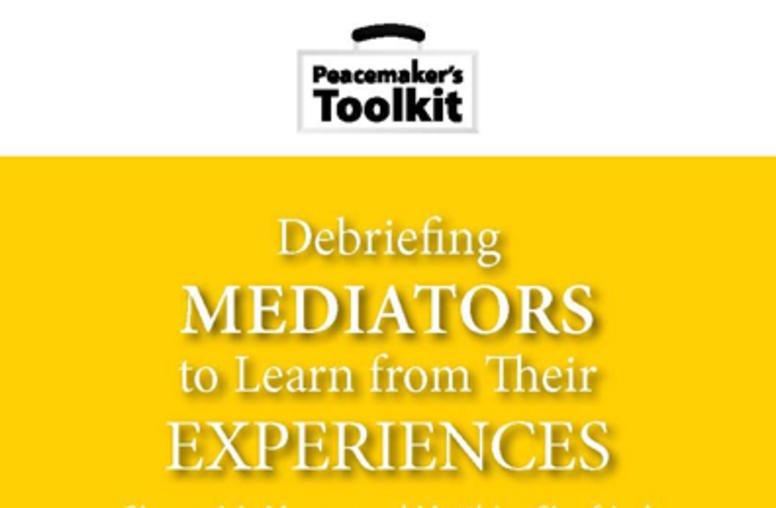
Debriefing Mediators to Learn from Their Experiences
This handbook enhances the practice of mediation by showing how lessons from individual mediators can be identified and made available both to their organizations and to a wider practitioner audience. It also gives guidance to staff debriefing mediators who are or have been directly involved in peace negotiations. This handbook is part of the Peacemaker’s Toolkit series, published by the United States Institute of Peace.
On the Issues: Darfur
The seven-year conflict in Darfur, Sudan has claimed the lives of hundreds of thousands of Darfuris and left millions homeless, amid clashes among various rebel groups, government forces and allied militias. In what could be a step towards ending that conflict, the Sudanese government and the Darfuri rebel group, Justice and Equality Movement (JEM), signed a cease-fire agreement on February 23, 2010.
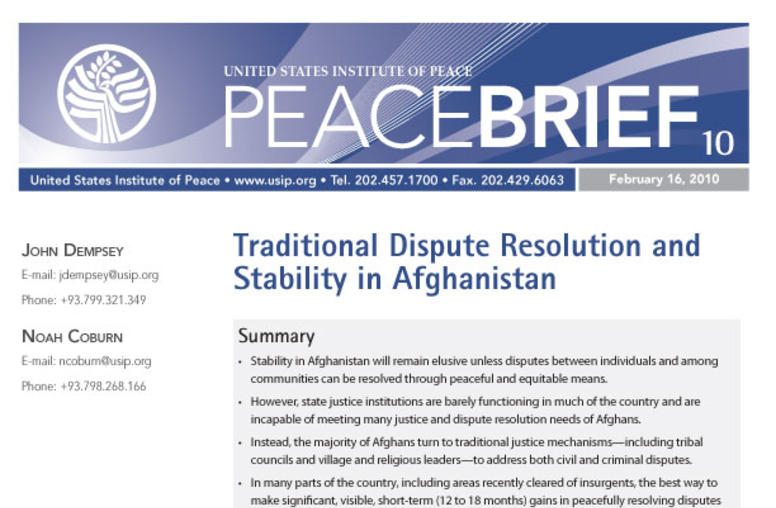
Traditional Dispute Resolution and Stability in Afghanistan
Stability in Afghanistan will remain elusive unless disputes between individuals and among communities can be resolved through peaceful and equitable means. However, state justice institutions are barely functioning in much of the country and are incapable of meeting many justice and dispute resolution needs of Afghans.
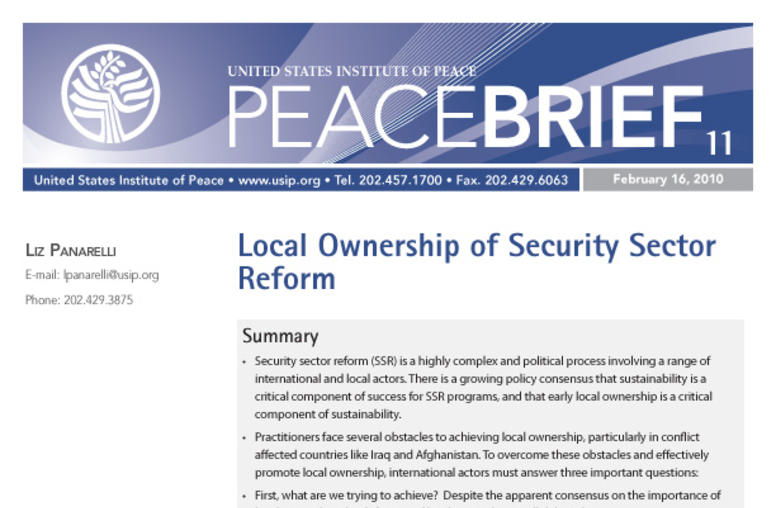
Local Ownership of Security Sector Reform
Security sector reform (SSR) is a highly complex and political process involving a range of international and local actors. There is a growing policy consensus that sustainability is a critical component of success for SSR programs, and that early local ownership is a critical component of sustainability.
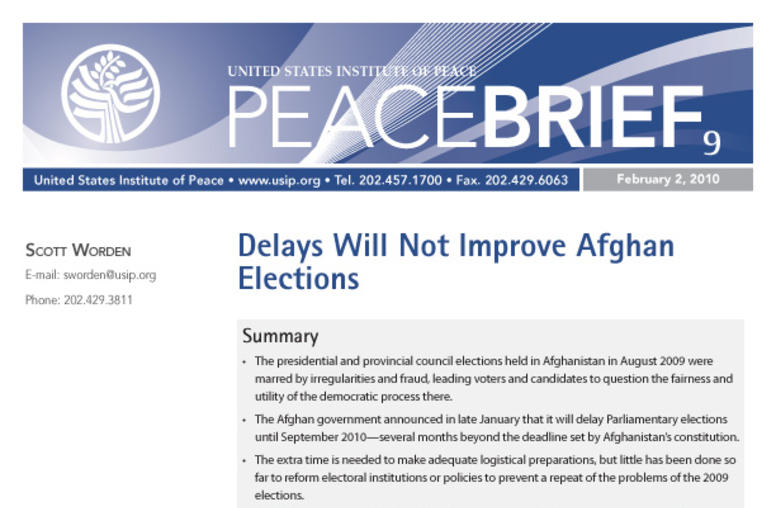
Delays Will Not Improve Afghan Elections
The presidential and provincial council elections held in Afghanistan in August 2009 were marred by irregularities and fraud, leading voters and candidates to question the fairness and utility of the democratic process there. The Afghan government announced in late January that it will delay Parliamentary elections until September 2010--several months beyond the deadline set by Afghanistan’s constitution.
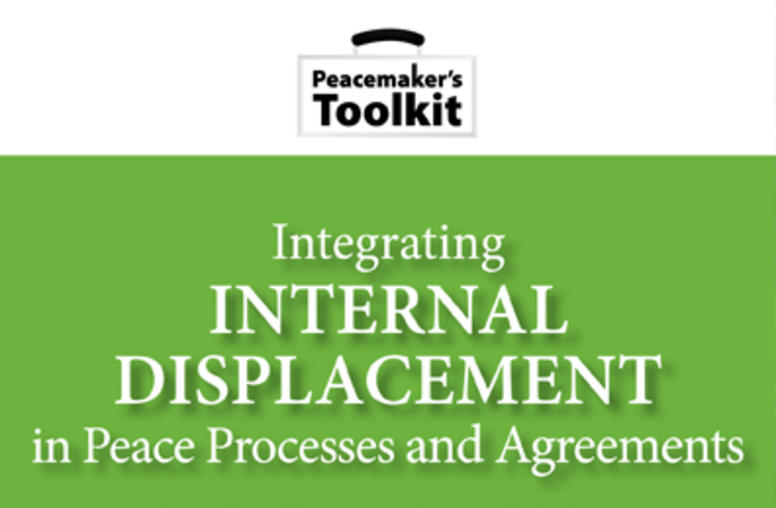
Integrating Internal Displacement in Peace Processes and Agreements
Leading experts on mediation and the plight of internally displaced persons (IDPs) collaborated to produce this handbook, which gives mediators the tools they need to incorporate IDPs' concerns into peace processes and agreements. This handbook is part of the Peacemaker’s Toolkit series, published by the United States Institute of Peace.
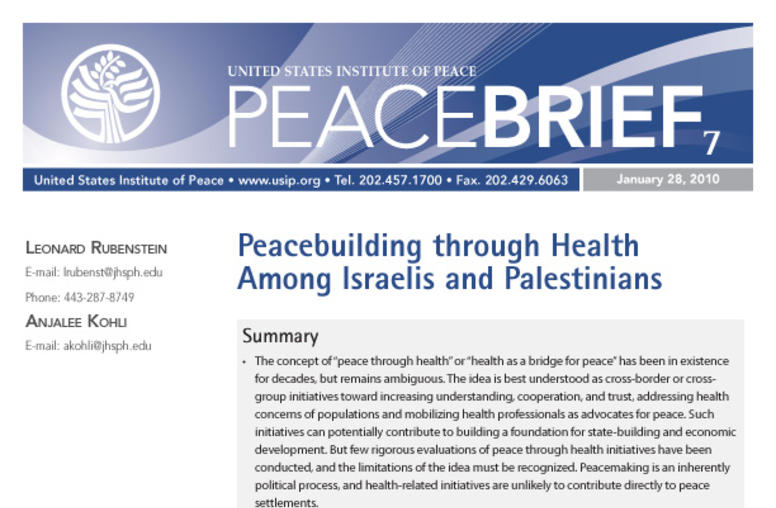
Peacebuilding through Health Among Israelis and Palestinians
Initiatives to seek to build peace through health extend over decades, and have found an institutional home with the World Health Organization’s program called Health as a Bridge to Peace. They are premised on the idea that cooperation among health professionals and health interventions in conflict zones can contribute not only to improved outcomes for populations who suffer from the impact of war, but also to building a lasting peace.
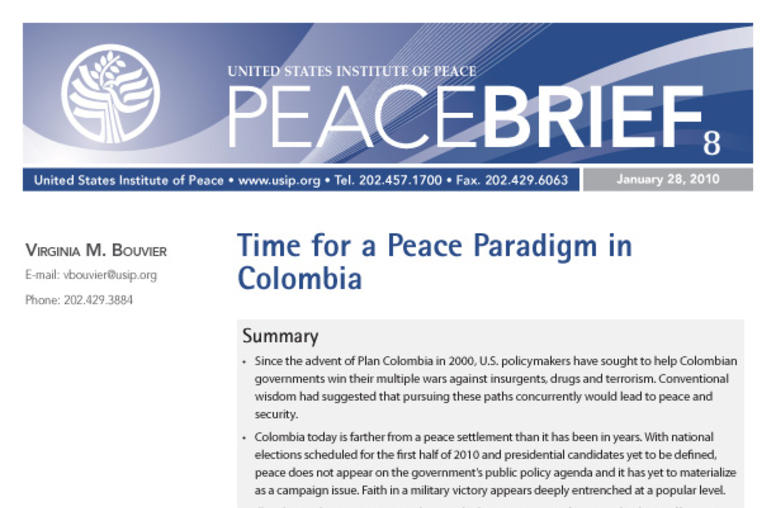
Time for a Peace Paradigm in Colombia
With congressional and presidential elections respectively scheduled for March 14 and May 30, 2010, electoral politics in Colombia will shape the prospects for peace in the coming months. Peace does not appear on the government’s public policy agenda and it has yet to materialize as a campaign issue.
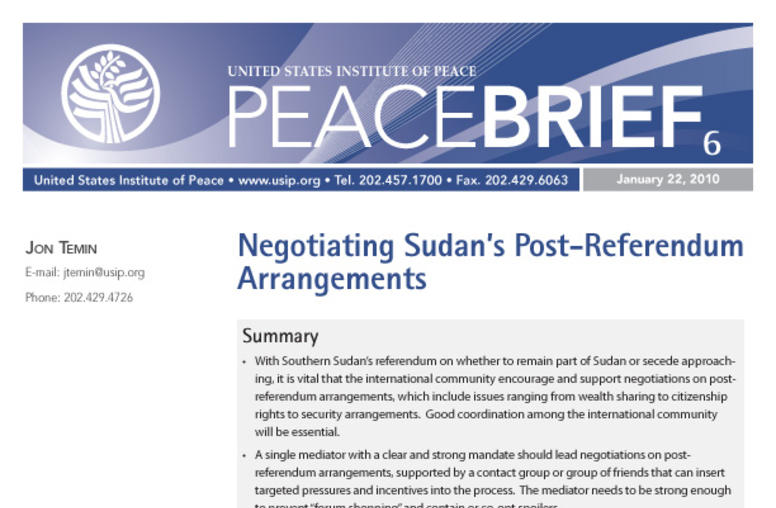
Negotiating Sudan's Post-Referendum Arrangements
With less than a year from Sudan’s key referendum on whether the South should secede, USIP considers how the international community can best manage the post-referendum process.
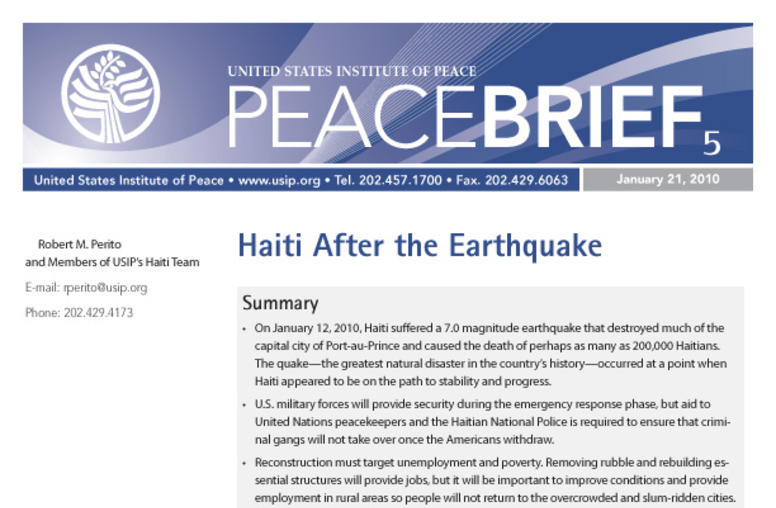
Haiti After the Earthquake
USIP assesses the damage done by the devastating earthquake, and recommends strategies for Haiti’s recovery and reconstruction.